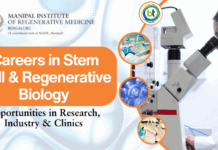Life Sciences Freshers Skills: Top 5 Skills Every Fresher Should Have
In today’s competitive job market, having the right skills is crucial for a successful career, especially in the field of life sciences. Whether you’re a recent graduate or just starting your journey in the life sciences industry, there are certain skills that can significantly enhance your employability and help you thrive in this dynamic field. In this article, we will explore the five essential skills every life sciences fresher must have to stand out from the competition and excel in their career.
Skill 1: Strong Scientific Foundation
A strong scientific foundation forms the backbone of a successful career in life sciences. It involves having a solid understanding of core scientific principles, theories, and methodologies. A strong foundation is essential for interpreting research findings, analyzing data, and making informed decisions. To build a strong scientific foundation, life sciences freshers should focus on key areas such as biology, chemistry, genetics, and statistics. Taking courses, attending workshops, and staying updated with the latest research can greatly contribute to developing a comprehensive scientific knowledge base.
Skill 2: Analytical Thinking
Analytical thinking is a critical skill for life sciences professionals. It involves the ability to break down complex problems, analyze data, and draw logical conclusions. In the life sciences industry, professionals often encounter vast amounts of data and need to identify patterns, trends, and relationships to solve problems and make informed decisions. Developing analytical thinking skills can be accomplished by practicing critical thinking exercises, engaging in scientific discussions, and participating in research projects. Embracing a curious and inquisitive mindset is essential for honing analytical thinking abilities.
Skill 3: Communication Skills
Effective communication is paramount in the life sciences field. Life sciences professionals need to communicate their ideas, research findings, and recommendations clearly and concisely to diverse audiences, including colleagues, stakeholders, and the general public. Strong written communication skills are essential for writing scientific papers, reports, and grant proposals. Equally important are oral communication skills for presenting research findings, participating in team discussions, and delivering presentations. Life sciences freshers can enhance their communication skills by attending workshops, joining public speaking clubs, and seeking feedback from mentors.
Skill 4: Problem-Solving Abilities
Problem-solving is at the core of the life sciences industry. Life sciences professionals encounter complex challenges that require innovative solutions. Developing problem-solving abilities involves the capacity to identify problems, analyze root causes, and devise effective strategies to overcome obstacles. Techniques such as critical thinking, hypothesis testing, and experimental design play a significant role in problem-solving within life sciences. Engaging in hands-on research projects, collaborating with peers, and seeking mentorship can foster the development of strong problem-solving skills.
Skill 5: Adaptability and Learning Agility
The field of life sciences is rapidly evolving, and professionals need to adapt to new technologies, methodologies, and discoveries. Adaptability is the ability to embrace change, navigate uncertainty, and quickly learn and apply new knowledge and skills. Life sciences freshers should cultivate a growth mindset and a passion for continuous learning. Pursuing professional development opportunities, attending conferences, and staying updated with industry trends are excellent ways to foster adaptability and learning agility.
FAQs:
- Q: Are these skills only relevant for life sciences freshers?
A: No, these skills are valuable for both freshers and experienced professionals in the life sciences field. They contribute to career growth and success at all levels. - Q: How can I build a strong scientific foundation?
A: You can build a strong scientific foundation by taking relevant courses, reading scientific literature, attending workshops, and actively engaging in scientific discussions. - Q: What are some effective problem-solving techniques in life sciences?
A: Effective problem-solving techniques in life sciences include critical thinking, hypothesis testing, experimental design, and data analysis. - Q: How can I enhance my adaptability in the life sciences industry?
A: To enhance adaptability, stay updated with the latest advancements, actively seek new learning opportunities, and embrace a growth mindset. - Q: Are these skills applicable to all areas of life sciences?
A: Yes, these skills are applicable across various domains within life sciences, including biology, biochemistry, genetics, pharmacology, and more.
Conclusion
In conclusion, life sciences freshers need to possess a diverse skill set to succeed in this competitive field. A strong scientific foundation, analytical thinking abilities, effective communication skills, problem-solving capabilities, and adaptability are the five key skills that can set them apart and open doors to exciting career opportunities. By continuously developing and refining these skills, life sciences freshers can embark on a journey of growth, make meaningful contributions to the field, and position themselves for long-term success.






































